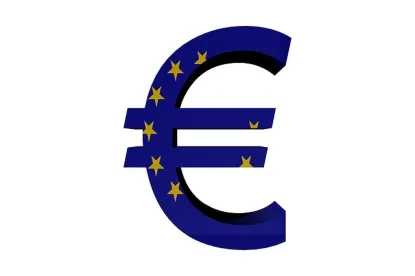Introduction
On 4 May 2017, the European Commission (the “Commission”) adopted a proposal for a Regulation amending Regulation (EU) No 648/2012 (“EMIR”) as regards the clearing obligation, the suspension of the clearing obligation, the reporting requirements, the risk-mitigation techniques for OTC derivatives contracts not cleared by a central counterparty, the registration and supervision of trade repositories and the requirements for trade repositories (the “Proposal”).
EMIR has been the most significant EU effort to reduce systematic risks in the OTC derivatives market by imposing (i) central clearing requirements for standardised OTC derivative contracts, (ii) risk mitigation requirements for OTC derivative contracts that are not centrally cleared, including the posting of margin; (iii) reporting requirements of all derivatives contracts, and (iv) rules for the establishment and operation of central clearing counterparties (“CCPs”) and trade repositories (“TRs”).
Under Article 85(1) of EMIR, the Commission was mandated to review EMIR and to prepare a general report on its application. In November 2016, the Commission adopted its EMIR report. Since then, the Commission has assessed the extent to which specific policy requirements in EMIR have met their objectives and concluded that certain areas of EMIR need to be simplified and /or made more proportionate.
Financial counterparties
The Proposal attempts to recalibrate the application of the clearing obligation as it applies to small financial counterparties (“FCs”). Firstly, the definition of “financial counterparty” has been expanded to include :
-
all alternative investment funds (“AIFs”),
-
securitisation special purpose entities (“SSPEs”), and
-
EU-authorised central securities depositaries.
In tandem with the expanded definition, the Proposal introduces clearing thresholds for FCs, designed to exclude small market players from the clearing obligation. The mechanism for determining whether an FC’s positions in OTC derivative contracts exceed the clearing thresholds is through a new requirement on FCs to calculate its group aggregate month-end average position for the months March, April and May of a given year. If any clearing threshold (Euro 1bn for each of credit derivatives and equity derivatives and Euro 3bn for each of interest rate derivatives, currency derivatives and commodity and other derivatives) is exceeded, then the FC will be subject to the clearing obligation for all asset classes and must start clearing within 4 months of becoming subject to the clearing obligation. If the FC later goes below those thresholds for the months March, April and May of a given year, it would no longer be subject to the clearing obligation.
These proposed changes are intended to reduce disproportionate costs and burdens for small FCs. However, the proposed change to the definition of “financial counterparty” will impose additional burdens on AIFs and SSPEs including more stringent risk mitigation techniques, the most onerous of which would be the margin posting requirements. This is a very significant change as SSPEs (and their securitisation issuances) are not currently structured in a way that permits the posting of margin.
Non-financial counterparties
The Proposal changes the way in which non-financial counterparties (“NFCs”) calculate their clearing thresholds by requiring the calculations only for the months March, April and May. Unlike FCs, (i) NFCs will only need to clear the classes of derivatives which exceed the relevant threshold, and (ii) NFCs can avail themselves of the hedging “exemption” when calculating whether the relevant threshold has been exceeded.
The Proposal does offer greater flexibility to NFCs, as: (i) they will only be required to carry out the threshold calculations at the end of March, April and May (instead of on a rolling average position over 30 working days) and (ii) they will not have to clear a class of derivatives where they are below the threshold for that class even where they exceed the threshold in respect of another class of derivatives.
The Proposal does not, however, specify whether an NFC which is above the threshold for only some of the classes of derivatives will be treated as an NFC+ or an NFC- for the purposes of the margin and other rules.
Pension funds
The temporary exemption from the clearing obligation of pension scheme arrangements will be extended by another 3 years, and the Commission is granted the power to extend that derogation once more, for a further 2 years.
Removal of the frontloading requirement
The current requirements for clearing may bring in OTC derivative contracts entered into or novated (i) on or after notification by a competent authority to ESMA of the an authorisation of a CCP to clear a class of OTC derivatives but (ii) before the date from which the clearing obligation takes effect, if the contracts have a remaining maturity higher than a certain minimum remaining maturity (the so-called “front-loading” requirement). The front-loading requirement has always been controversial as it creates legal uncertainty about the status of OTC derivative contracts entered into after the relevant CCP is authorised, leading to an inability to correctly price such transactions. Its removal will be welcomed by market participants.
Amendments to the reporting obligation
EMIR’s reporting obligations are administratively burdensome, especially for small market participants. In that respect, the Proposal amends the responsibility and liability for reporting as follows:
-
For exchange-traded transactions, the CCP will be responsible, and legally liable, for reporting on behalf of both counterparties.
-
For transactions between an FC and an NFC-, the FC will be responsible, and legally liable, for reporting on behalf of both counterparties.
-
The management company of a UCITS will be responsible, and legally liable, for reporting on behalf of that UCITS.
-
The manager of an AIF will be responsible, and legally liable, for the reporting on behalf of the AIF.
Trade Repositories
In connection with reporting, EMIR created TRs as entities that centrally collect and maintain the record of derivatives. In that respect, the Proposal:
-
envisages simpler applications for extension of registration for TRs already registered to collect data for securities loans and repos under the Securities Financing Transactions Regulation; and
-
will grant direct access to authorities in third countries to the data held in TRs if the Commission has adopted an implementing act declaring that the third country has effective supervision and enforcement of TRs, guarantees professional secrecy and that such TRs are subject to a legally binding and enforceable obligation to give direct and immediate access to the data to the relevant EU authorities.
Other
The Proposal also contemplates:
-
a new obligation on clearing brokers to provide clearing services under “fair, reasonable and non-discriminatory commercial terms” (to be subject to further rules);
-
a clarification that client assets and positions held at a CCP shall be insolvency-remote from the CCP and the clearing broker.
Conclusion
EMIR has had a profound effect on the OTC derivatives market, bringing about significant compliance, operational and trading costs. The Proposal is intended to recalibrate some of the EMIR obligations, most notably the clearing and the reporting obligations, for the benefit of smaller market participants. However, the Proposal treats unregulated funds and SSPEs as quasi-financial counterparties and will have the effect of imposing additional burdens on them through the expanded definition of FC. The Proposal is now subject to the European legislative process including approval by the Council and the Parliament.






 />i
/>i

